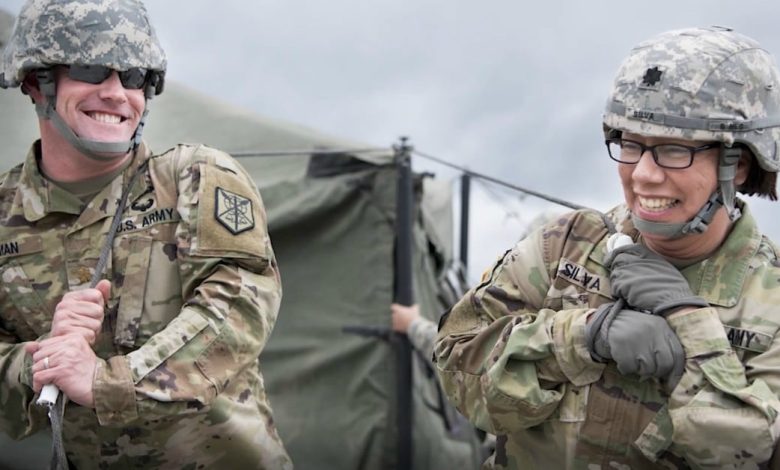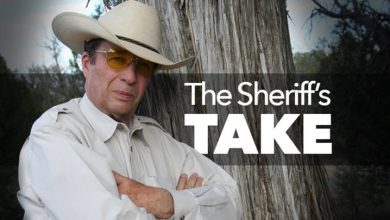Federal employees should retain rights to reservist differential pay

Members of our armed services, including reservists, risk their lives to keep Americans safe. This sacrifice should not come at the added cost of lost wages, particularly when they work for the same employer — the federal government — as both civilian employees and part-time members of the military (here, “reservists” and “reserves” include both the National Guard and military reserves).
Federal government employees constitute a vital part of our military reserves, with up to 20% of the total one million reservists employed by the executive branch as civilians, according to a 2024 RAND report.
Congress enacted a “differential pay” statute to support federal workers called to arms. Under the differential pay law, employees — in this case, reservists — get paid their full (higher) salary from the federal government and do not have to incur a pay cut when they serve in uniform. Pursuant to the law, federal employees in the reserves are entitled to differential pay when “order[ed] to perform active duty in the uniformed services” in different scenarios, including “during a war or during a national emergency declared by the President or Congress.”
Pending before the Supreme Court is Feliciano v. Department of Transportation, a case about the interpretation of the differential pay statute. The Department of Transportation (DOT) argues that the law should be construed narrowly by requiring reservists to demonstrate not only that their service was performed “during” a war or national emergency, but that it was also “connected” to such war or national emergency.
I have concerns with the government’s interpretation. By limiting which federal reservists are entitled to differential pay, DOT’s position will have detrimental financial effects on brave federal employees and their families.
I am speaking out because the agency I lead, the Office of Special Counsel, enforces the Uniformed Services Employment and Reemployment Rights Act (USERRA) as it applies to federal employees. The purpose of USERRA is to protect military personnel from civilian employment discrimination and ensure that they get their jobs back after service as if they had never left. The law protects the non-military professional lives of those who serve by minimizing disadvantages to their careers and ensuring their prompt reemployment after deployment. The law also seeks to encourage uniformed service. Notably, Congress intends that the federal government be a “model employer” under USERRA in seeking to reacclimate military personnel to their civilian lives.
But caring for their return is only part of the job. It also matters that military personnel do not suffer financial hardship while they are serving. This is where the differential pay statute comes in. Designed to maintain the financial health of reservists, the differential pay statute seeks to ensure that workers called to arms are paid as much as they receive during their federal civilian employment — that is, that they don’t suffer a loss of income by serving. This view — shared by petitioners, members of Congress and veterans’ groups — is consistent with other laws designed to protect service members like USERRA. And it is something that many private companies already provide to their employees who serve.
For over 80 years, the Supreme Court has held that statutes concerning service members should be “liberally construed to protect those who have been obliged to drop their own affairs to take up the burdens of the nation,” aiming to “benefit … those who left private life to serve their country in its hour of great need.” Under this canon, where statutes concerning reservists and veterans are open to multiple interpretations, they should be read “in the beneficiaries’ favor.”
Earlier this year, in Rudisill v. McDonough, a majority of the Supreme Court affirmed the canon’s continued vitality. Where the statute is “ambiguous, the … canon … favor[s]” the service member, the court concluded. In the present case (and much like the court’s approach in Rudisill), where the differential pay statute is possibly open to several interpretations, I believe it should be interpreted in favor of reservists — providing a more expansive view of the benefits afforded to them, not less.
Congress’s intent at the time the differential pay statute was enacted further supports this view. Sen. Richard J. Durbin, who co-introduced the underlying act in 2001 with then-Sen. Barbara Mikulski, encouraged Congress to “provide … reservist employees with financial support so they can leave their civilian lives to serve [the] country without the added burden of worrying” about the financial well-being of their families. “They are doing so much for us; we should do no less for them,” he said.
Sen. Mikulski added, “[W]e need to … close the gap between the income [reservists] are leaving behind and the country they are working to defend.”
In sum, the pro-military benefits canon and congressional intent lead me to the conclusion that the differential pay statute should be read to ensure that all civilian federal employee reservists who serve are granted differential pay whenever a war or national emergency is ongoing.
The federal government should not impose two different salaries on the same employee. If the Supreme Court does not rule in the federal employee’s favor, I urge Congress to act, again, to protect our service members and not add to their sacrifice.
Hampton Dellinger was confirmed by the United States Senate to head the Office of Special Counsel in March 2024. OSC’s military-related responsibilities include working with and protecting whistleblowing federal employees at the VA, DOD and other agencies, plus ensuring civilian workers’ reemployment rights are protected after their deployments and reserve duties are fulfilled.
Read the full article here







